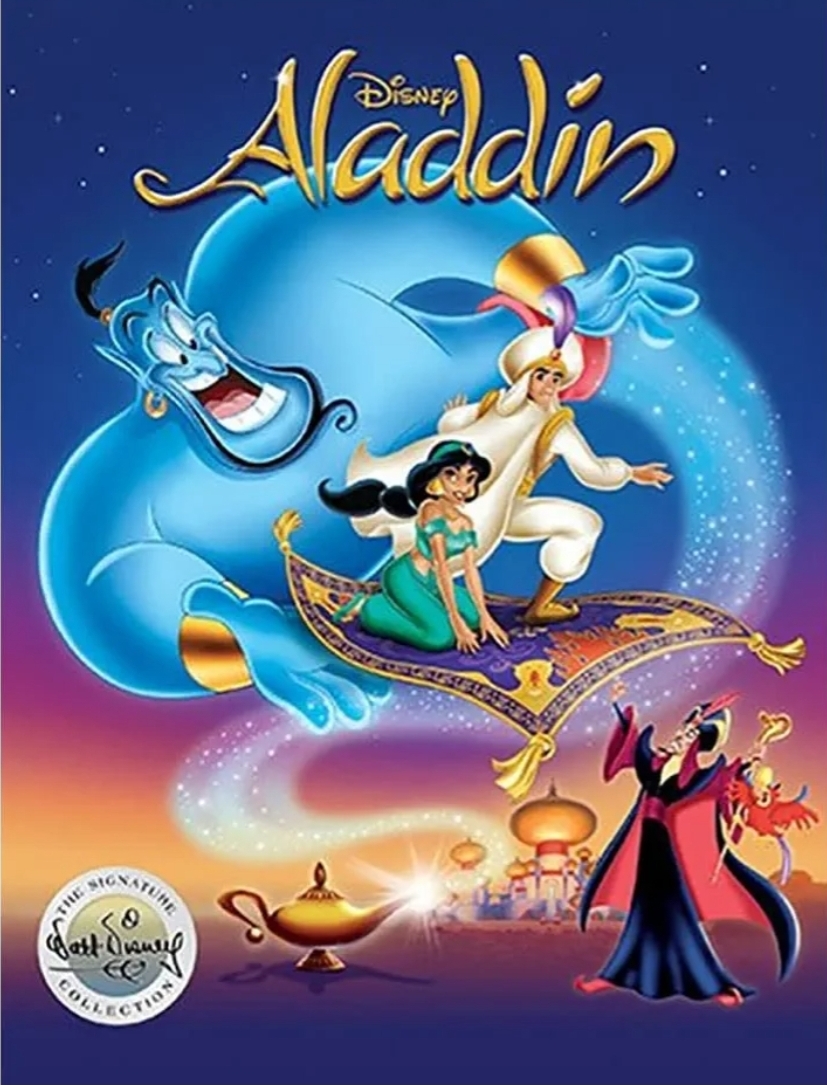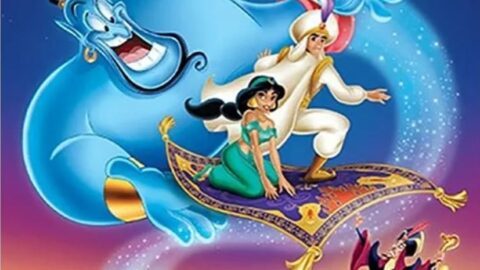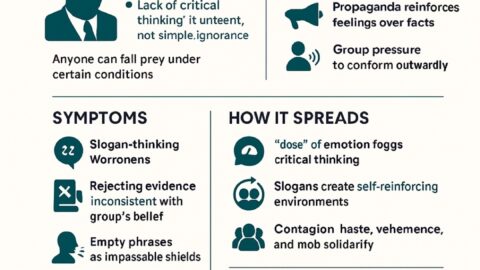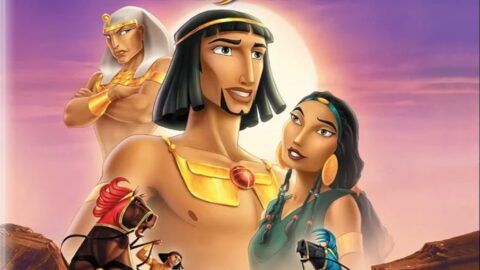Core Question: Does worth come from appearances and power, or from truth, freedom, and rightly ordered love?
Tagline (spirit): “Power without virtue corrupts; freedom ordered by Agápē dignifies.”*
We ended our Lion King reflection with a hard truth: broken kingdoms aren’t healed by grabbing the throne but by embracing responsibility. Aladdin picks up that thread at the personal level. If Simba learns that kingship must become stewardship, Aladdin learns that identity must become integrity. “Prince Ali” is the costume of borrowed power; the real prince is the man who tells the truth, keeps his promise, and uses freedom to dignify others—starting with a Genie who longs to be free.
This is more than a fairy-tale makeover. It’s a civic mirror. A nation that confuses spectacle for substance eventually crowns Jafar in a different outfit. We become what we reward. When image outruns character, when wishes outrun wisdom, we trade covenant for convenience and call it leadership. Aladdin warns that counterfeit worth—status, spin, and shortcuts—always ends in bondage, while truth-telling and promise-keeping re-order freedom toward love.
That’s why Agápē sits at the heart of this reading. Agápē doesn’t flatter; it frees. It refuses to use people as props, even when three wishes say we could. In story form, Aladdin’s greatest act is not winning the palace but honoring a promise when it costs him power. In public life, that same logic rebuilds trust: freedom bound to truth, authority bound to service, prosperity bound to the common good.
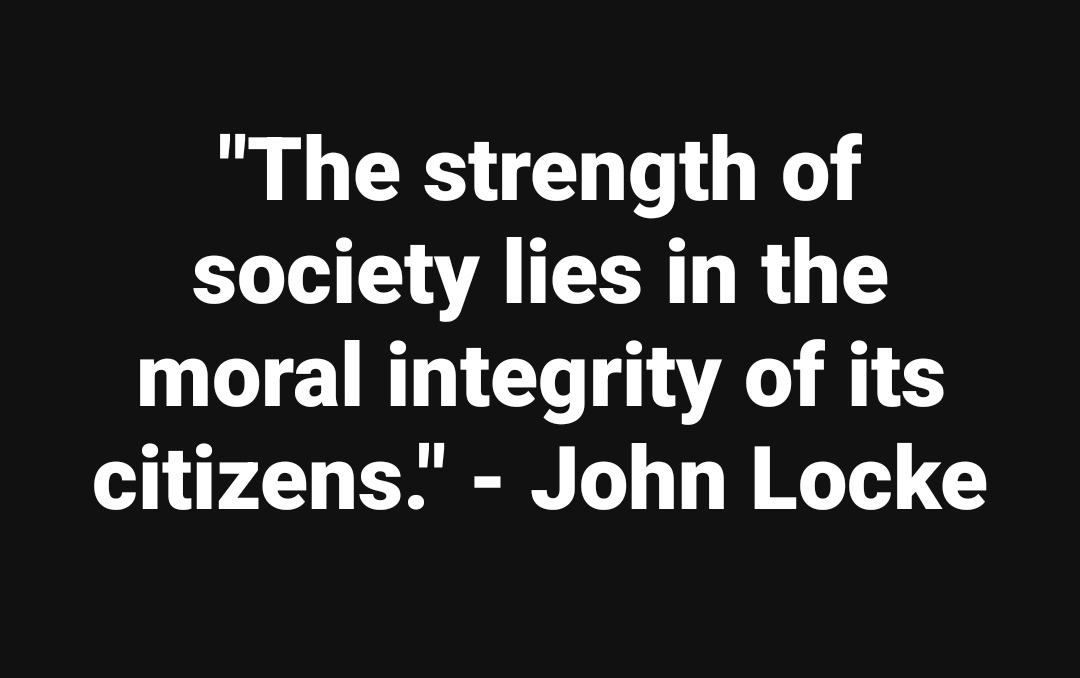
If The Lion King calls leaders back to conscience, Aladdin calls persons—and therefore peoples—back to truthful identity. Together they sketch a path toward becoming a covenant nation again: citizens who prefer virtue to vibes, promises to posturing, stewardship to spectacle. The question before us is not whether power can dazzle, but whether love can order our freedom so that it dignifies neighbor and nation alike.
Street Rat, Princess, and the Hunger to Be Seen
Moral Core: Dignity vs. status; authenticity vs. image
Aladdin, a clever orphan, survives by wit and theft, internalizing society’s label: “street rat.” Jasmine, a princess caged by law and expectation, longs for agency. Their rooftop encounter hints at a shared truth: we are more than our roles. Jafar exploits Aladdin as a “diamond in the rough” to fetch the lamp—instrumentalizing a person for power.
Lessons
- Human dignity is intrinsic; class and labels are masks, not essence.
- Using people as tools (Jafar) violates their dignity and corrodes the user.
- Yearning to be “seen” can tempt us to counterfeit identities.
Philosophical Frame
- Personalism: Persons are ends, never mere means.
- Existentialism (authenticity): Identity must be lived truthfully, not costumed for approval.
The Lamp, Wishes, and the Ethics of Desire
Moral Core: Ends/means; freedom vs. domination
The Genie—omnipotent yet unfree—offers three wishes with bright rules (no killing, forcing love, or resurrection). Aladdin asks to become a prince to win Jasmine. The makeover works politically but fractures trust. Meanwhile Jafar seeks absolute power through deceit.
Lessons
- Technology/magic magnify character: wishes expose what we really value.
- Symbols (princely status) cannot replace substance (virtue, truth).
- Freedom is mutual: Aladdin’s integrity is tied to the Genie’s emancipation.
Philosophical Frame
- Kantian ethics: Deceit uses others as means and collapses trust.
- Virtue ethics: Desire needs temperance and prudence to serve the good.
Courtship, Lies, and Consent
Moral Core: Truthful love vs. manipulative romance
“Prince Ali” pursues Jasmine with pageantry. She resists spectacle and tests for truth. Aladdin waffles—truth risks rejection; lies risk hollow “success.” He promises to free the Genie “later,” postponing the good for personal gain—classic rationalization.
Lessons
- Consent requires truth; love minus honesty is control with manners.
- Delayed integrity is often disguised self-interest.
- Courage in love means risking outcome for authenticity.
Philosophical Frame
- Agápē vs. Érōs: Érōs (attraction) must be ordered by agápē (willing the other’s good).
- Relational justice: Informed agency is a moral requirement of love.
Usurpation: Power, Fear, and the Illusion of Control
Moral Core: Tyranny as the will to dominate
Jafar steals the lamp, enthrones himself, enslaves the Genie, and remodels Agrabah by force. His wish-escalation (sultan → sorcerer → “most powerful being”) shows the tyranny spiral: power unmoored from virtue devours both ruler and realm.
Lessons
- Domination always escalates; appetite grows by what it feeds on.
- Enslaving others enslaves the self to paranoia and fear.
- Evil’s logic ends in self-contradiction (Jafar’s final wish makes him a bound genie).
Philosophical Frame
- Arendt/Orwell: Total power seeks the annihilation of limits, then perishes by them.
- Natural law: Just rule respects the order of freedom and truth.
Truth, Freedom, and the Right Wish
Moral Core: Vocation over validation; promise over PR
Aladdin defeats Jafar by naming limits: even sorcerers aren’t free of contingency. With order restored, Aladdin finally keeps his pledge—he uses his last wish to free the Genie, choosing truth and friendship over status. Moved by justice and love, the Sultan changes the law so Jasmine can choose her spouse.
Lessons
- Keeping promises at cost is the signature of Agápē.
- Laws should serve persons and the common good, not entrench arbitrary status.
- Freedom (Genie’s) multiplies love and creativity for everyone.
Philosophical Frame
- Civic virtue: Good governance reforms rules to honor dignity.
- Eudaimonia: Flourishing arises when power serves relationships and truth.
Symbols & What They Mean
| Symbol | Meaning |
|---|---|
| Lamp | Power as a tool—neutral, revealing the user’s character |
| Wishes | Desire under judgment; shortcuts that test ends/means integrity |
| Disguises (Prince Ali) | Image management; counterfeit identity for approval |
| Magic Carpet | Trust and shared risk—relationship as adventure |
| Genie’s shackles | Unfreedom; the moral claim of promises and liberation |
| Cave of Wonders | Moral testing ground; unworthy desire collapses the floor |
| Jafar’s staff | Hypnosis/propaganda; soft control that paves the way for hard control |
Core Themes (with Real-World Applications)
Role ≠ Worth
Lesson: Titles and pedigree do not define dignity.
Apply: De-bias hiring/promotion; test for character and truthfulness, not pedigree theater.
Truthful Love & Consent
Lesson: Love requires truth to be free.
Apply: In leadership/parenting/romance, practice “full-information agreements”—no outcomes won by concealment.
Promises over Power
Lesson: Keeping a pledge (freeing the Genie) is truer greatness than winning a throne.
Apply: Publish promises; create mechanisms that make it easier to keep them than to break them.
The Wish Test
Lesson: Shortcuts expose character; some wins are not worth having.
Apply: Pre-commit red lines: “We will not win by lying, coercion, or secrecy.”
Reforming Unjust Rules
Lesson: Good law serves people; when it doesn’t, change it.
Apply: Review policies for dignity impacts—especially on the least powerful.
Character Arcs (as Moral Progress)
| Character | Starting Constraint | Transforming Moment | New Virtue |
|---|---|---|---|
| Aladdin | Shame + image-hunger (“street rat” → “Prince Ali”) | Chooses to free the Genie; tells the truth | Integrity, fidelity, courage |
| Jasmine | Agency constrained by law | Rejects spectacle; chooses freely | Prudence, moral clarity, justice |
| Genie | Omnipotent servitude | Receives freedom by Aladdin’s wish | Gratitude, creative service as a free friend |
| Jafar | Ressentiment; will-to-power | Becomes a genie—power bound by chains | (Negative) Hubris exposed; self-enslavement |
| Sultan | Paternal benevolence within bad law | Reforms marriage law for consent | Teachability, just authority |
Moral Psychology (Kohlberg Mapping)
- Stage 2 (Self-interest): Aladdin’s survival stealing; first wish for status.
- Stage 3 (Approval): “Prince Ali” pageant—seeking validation.
- Stage 4 (Law/Order): Respect for rules emerges but is tested by bad laws.
- Stage 5 (Social Contract): Sultan reforms the law for the people’s good and consent.
- Stage 6 (Principle): Aladdin’s promise-keeping and liberation of the Genie; Jasmine’s insistence on truthful love.
A Practical “Aladdin” Checklist (for people, orgs, communities)
- Lamp Audit: What “power tools” (tech, authority, budget) reveal your character? Set guardrails (truth, consent, no secrecy).
- No-Costume Rule: Ban wins achieved by misrepresentation—document truth-first protocols.
- Promise Ledger: Track commitments publicly; celebrate costly follow-through.
- Freedom Index: Who in your sphere is “genie-bound” by policy or culture? Change the rules.
- Wish Pre-Commit: Write the three “wishes” you won’t use (coercion, deceit, exploitation), even when they would “work.”
Final Reflection
Aladdin is a fable about freedom, truth, and love ordered by Agápē. Image-chasing looks like ascent but hollows the soul; domination looks like strength but ends in chains. The film’s moral center is simple: choose people over power, promises over pageantry, truth over theater—and you’ll find that the greatest magic isn’t in wishes granted, but in hearts freed.
*What is Agápē?
In classical Greek, there are four common words for “love”:
- Agápē — sacrificial, unconditional love; wills the good of the other, even at personal cost.
- Érōs — romantic/erotic desire; attraction and longing.
- Philia — friendship/affection; comradeship shaped by shared virtue.
- Storgē — familial love; natural affection within family bonds.
Why Agápē fits Aladdin
- The third wish: freedom over fantasy
Aladdin frees the Genie instead of securing his own status. He gives up ultimate wish-advantage to will his friend’s good—textbook agápē. - Truthful love > costume romance
“Prince Ali” is érōs dressed in spectacle—attraction managed by image. Agápē matures when Aladdin risks rejection to tell the truth and fight for Agrabah’s safety, not his persona. - Jasmine’s agency honored
Real love doesn’t imprison. Aladdin (at his best) supports Jasmine’s freedom to choose—including challenging the law that commodifies her. That’s agápē guarding the other’s dignity, not possessing her. - Genie’s friendship as self-gift
Genie repeatedly spends his power for Aladdin’s good (often beyond the literal wishes), modeling philia steeped in agápē—loyalty that serves rather than keeps score. - Sultan’s law reformed by love
The Sultan revises the marriage law so Jasmine can choose. Storgē (fatherly affection) is purified into agápē when authority changes systems to protect the beloved’s flourishing. - Counterfeit loves unmasked
Jafar embodies domination masquerading as desire: power-lust that treats people as tools. His “love” is control; agápē exposes and defeats it by freeing captives, not flipping the throne for ego. - From survival to service
A “diamond in the rough,” Aladdin begins in scarcity-thinking. Agápē reshapes him from self-preservation to protector—risking himself in the palace battle and choosing a future that blesses others.
Symbols that point to Agápē in Aladdin
- The Lamp → power should serve persons, not possess them.
- Genie’s Cuffs → liberation as the highest gift of love.
- Magic Carpet → trust and loyal companionship (philia elevated).
- “Prince Ali” Parade → spectacle that withers without truth.
- Cave of Wonders → temptation to grasp; agápē learns to release.
- Jafar’s Serpent Staff → coercion; love refuses manipulation.
Quick takeaway
Aladdin redefines the win: not getting the girl or the crown, but setting others free. When love becomes agápē—truthful, liberating, and costly—érōs is ennobled, philia deepens, storgē matures, and even a street rat becomes a steward of a kingdom rather than a prisoner of his wishes.

